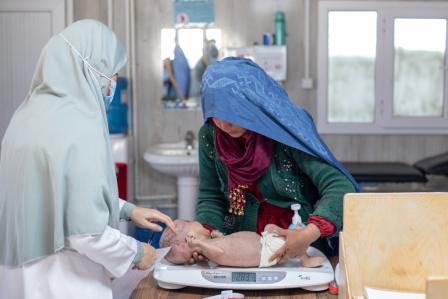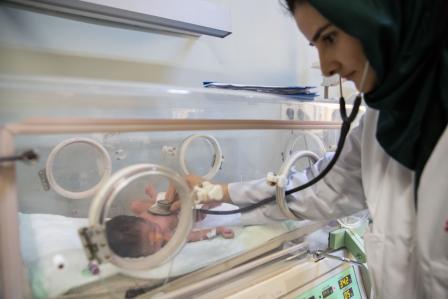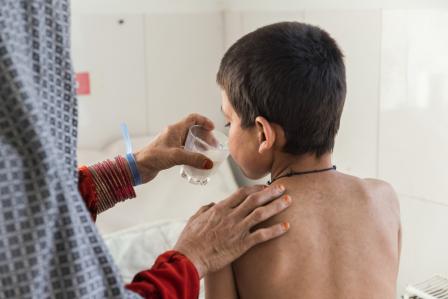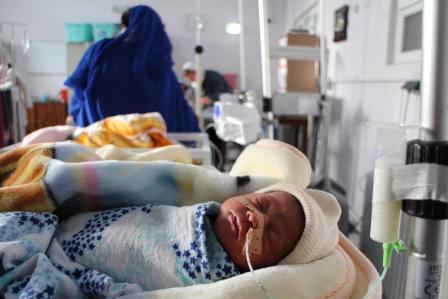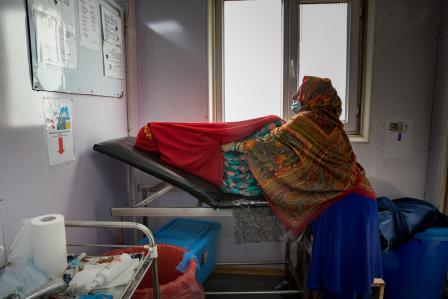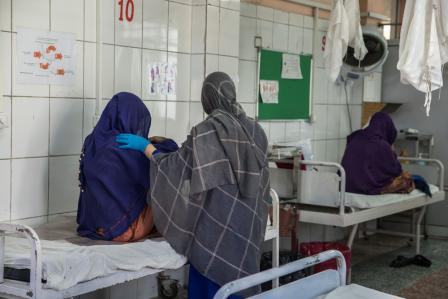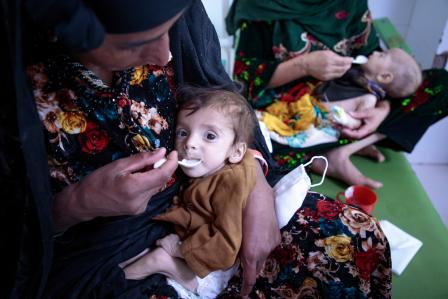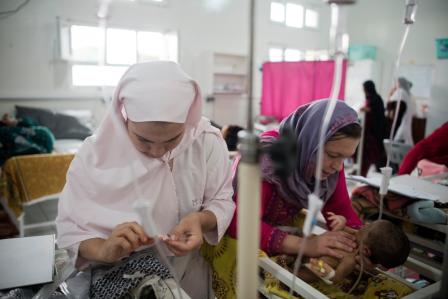Breathe: The Story of Saleem
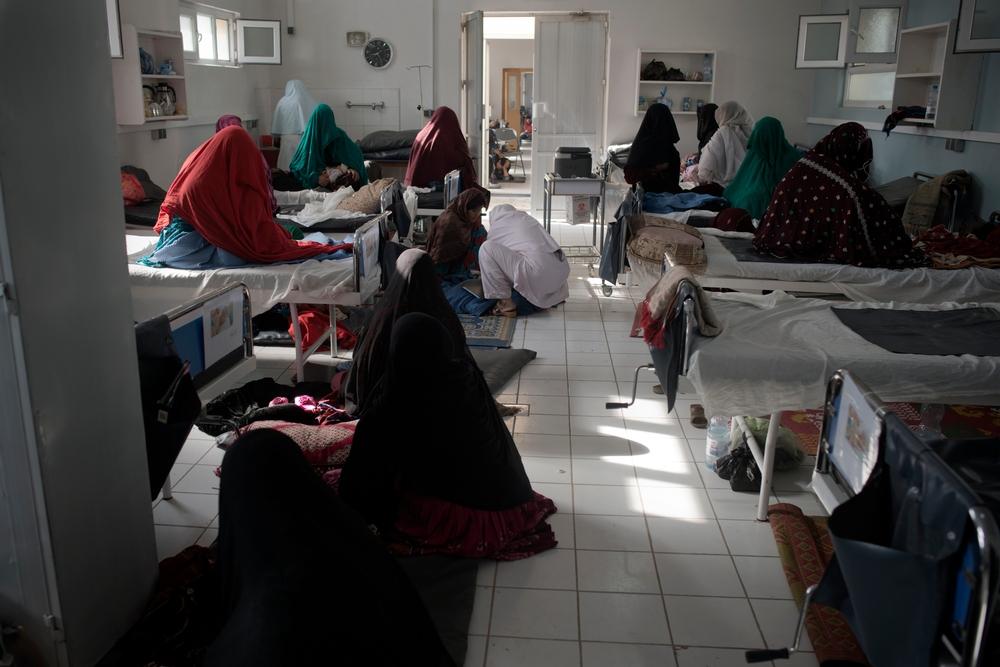
Women and their newborns crowd the beds of the Doctors Without Borders Maternity Hospital in Khost. Afghanistan, 2013. © Andrea Bruce/Noor Images
It was an unspoken understanding that a sick newborn’s life is fragile in this country and that the loss of a child is a common occurrence in many women’s lives. This sick women had had a long journey to the hospital and delivered a baby boy. However, he had severe breathing difficulties because his lungs were not able to function properly. He stopped breathing several times, but pulls through.
“This is not your fault, it belongs to Allah. Do not be sad, you try very hard to help him, I know you are good doctor. Thank you very much.”
I felt a lump form in the back of my throat as she tried to console me in return, after I had just explained to her that her baby was very sick and that although we had tried our best to help him, I was not sure he would make it.
She was a petite woman; mother of two - who had just given birth to her third child. Tears welled up in her eyes but she held them back. I put my arms around her and said no more. It was an unspoken understanding that a sick newborn’s life is fragile in this country and that the loss of a child (or children) is a common occurrence in many women’s lives. But that still does not take the pain away from a mother, whose maternal instincts are to nurture and protect her children. All she can do now is pray, and leave the fate of her child in Allah’s hands when put in a situation where she is rendered helpless. And be strong. Not displaying your fears and sadness does not mean it is not felt or it is not real. On the contrary, it takes strength to mask the pain.
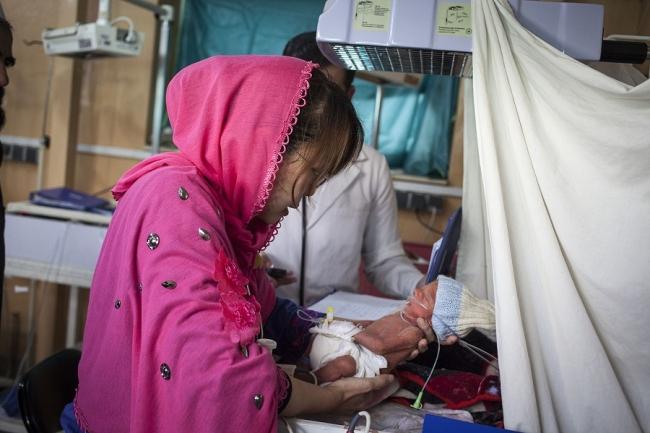
It had been a long journey for her to get to the hospital. She lives far away, in a district of Khost province and when labor started in the middle of night,like in most cases here, the family could not travel the risky roads at dark because of insecurity. She stayed home in labor for some hours until dusk and arrived early in the morning at the hospital, already ready to deliver. After a few strong pushes, she delivered a baby boy. But he was not crying. He was limp and lifeless and covered with thick greenish fluid. The stress from the prolonged labor had made him pass greenish stool (meconium) before he was born and he had inhaled it into his lungs. It took 20 minutes of resuscitation before his breathing went from intermittent gasps to good breathing effort.
We brought him back to the Neonatology ward and put him on oxygen therapy. However, he had severe breathing difficulties because his lungs were not able to function properly as he had aspirated meconium deep into his lungs. He was breathing twice as fast as a normal baby and with no machines to take over the work of breathing for him, it was just a matter of time before he will become tired and stop breathing.
And he did. Many times.
He struggled to breathe the whole night and by the next morning, I could see that his breathing was becoming more and more shallow. And then he became so tired he stopped trying and his oxygen level crashed. We immediately gave him breaths with a manual breathing device and after a few minutes, he started having his own breathing. After a few more minutes, his breathing became better and he gave a small cry. Well done, baby. Don’t give up…hang in there. We hooked him back to his oxygen tubing. Oxygen level was good – the consistent pitch of the beeps coming from the oximeter was reassuring and we proceeded with rounds.
Not ten minutes later, I heard the dreaded descent in pitch of the beeps coming from his oximeter, which meant his oxygen level was falling. I made my way back to his cot and sure enough, he was barely breathing. We started breathing manually for him again. Come on baby, don’t quit on me. Breathe. Breathe, please. My eyes were glued to his little chest moving up and down with each breath that I gave. Breathe!!! And then, like a battery kick-starting to life, he started breathing. Yes! I gave a sigh of relief. We put him back on his oxygen tubing cautiously and I silently prayed for no more.
He stopped breathing another three times that morning. But all three times, he managed to pull through. He is a strong one, I thought to myself. That was when I had to tell his mother about how ill he was and that I was very afraid he wouldn’t survive, but instead of facing her own anguish, she worried about how I felt. I was humbled. “He will get well, Insh’Allah”, she said with conviction. I gave a small smile and wished I had her optimism.
He stopped breathing another two times that evening, but he made it through to the next morning. He stopped breathing only two times the second day and made it to the next day. And the next. Like a small bundle of miracle, his breathing gradually improved and he became more alert and was even looking around. By the fourth day, we managed to feed him a little milk. His mother was overjoyed that she could finally give him her breast milk even though it was only three millilitres and it had to be given through a feeding tube.
At last, she felt like she could actually do something for her child. The three millimeters became six, and then nine and not long after, he was able to breastfeed on his own. The tubes came off one by one and he was looking like a strong baby boy, except for the oxygen tubing in his nose. He had a good loud cry, despite being oxygen dependent for a while due to the damage from the meconium in his lungs.
He stayed with us for over three weeks. During this time, his mother patiently cared for him and never once made a fuss to go home. All of the other babies who were admitted at the same time as her child had gone home long before. But she never once demanded to leave even though she has two small children at home.
When it was finally time for him to go home, I was overcome with mixed feelings of happiness and fear. Happy, that this strong little fella survived despite the odds, and could finally go home to see his family. Fear, and also apprehension of letting him go to the outside world, worrying about a million things which could possibly happen to him.
His mother was overjoyed and I could see the excitement on her face. The smile in her eyes was obvious as she dressed him in a new light yellow pantsuit she had bought for him and lovingly swaddled him into a neat cocoon. A miracle in a bundle.
She bestowed upon me the greatest honour one could receive – she asked me to name him. I was deeply touched. As I held him one last time, I whispered into his ear, “Goodbye, dear Saleem. Be like your name, safe and sound and be blessed with good health.”
And that was my utmost wish for him.
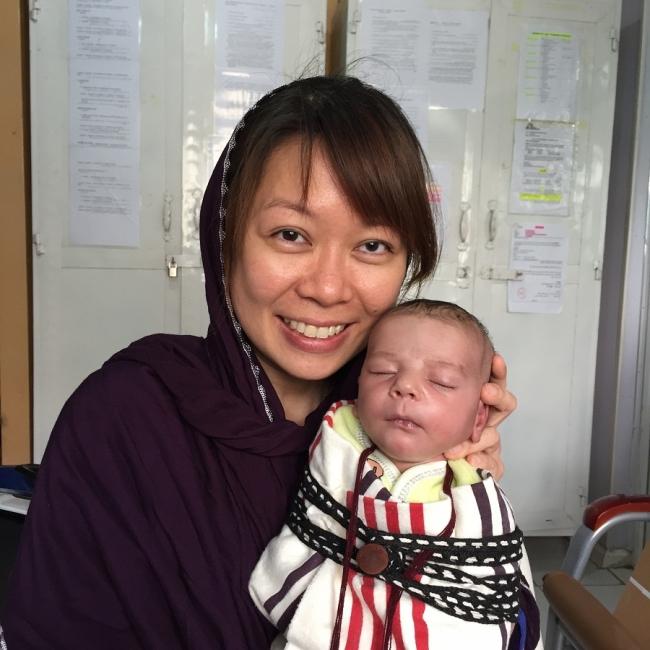
Fei and Saleem before he left the hospital.
Wong Poh Fei is a paeditrician from Malaysia, working in the neonatology unit of Khost Maternity Hospital, Afghanistan.
